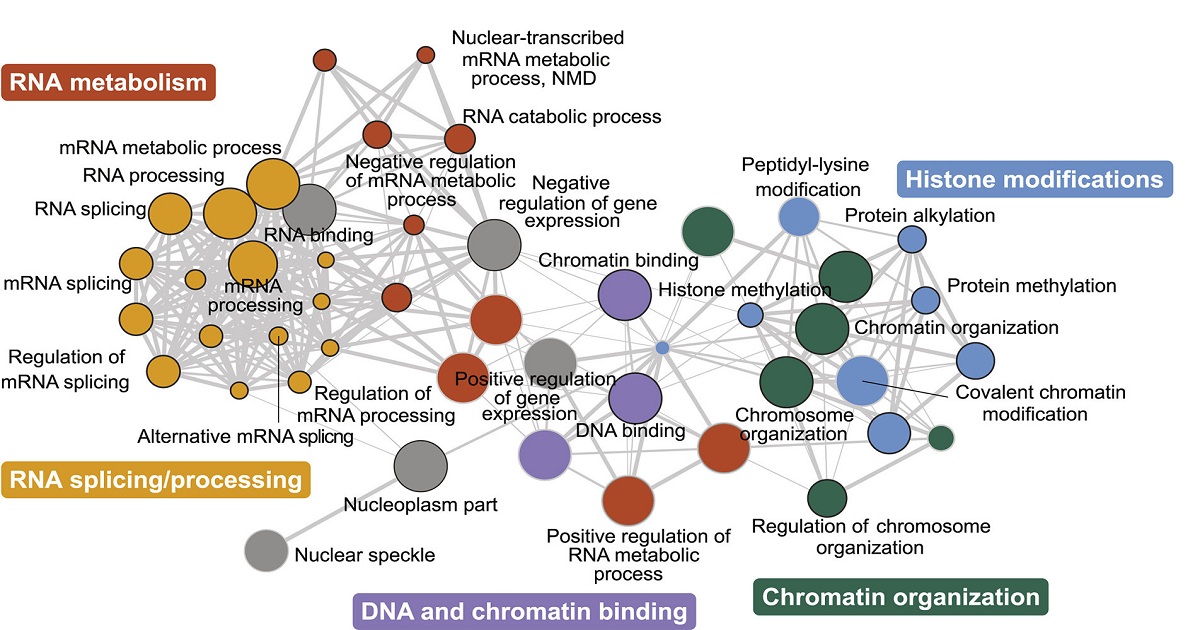Unraveling a genetic network linked to autism
Medical Xpress | November 02, 2018

Donnelly Centre researchers have uncovered a genetic network linked to autism. The findings, described in the journal Molecular Cell, will facilitate developing new therapies for this common neurological disorder.
As part of a collaborative research program focusing on autism led by Benjamin Blencowe, a professor in the University of Toronto's Donnelly Centre for Cellular and Biomolecular Research, postdoctoral fellow Thomas Gonatopoulos-Pournatzis, lead author of the study, uncovered a network of more than 200 genes involved in controlling alternative splicing events that are often disrupted in autism spectrum disorder (ASD). Alternative splicing is a process that functionally diversifies protein molecules—cells' building blocks—in the brain and other parts of the body. Blencowe's laboratory previously showed that disruption of this process is closely linked to altered brain wiring and behavior found in autism.
"Our study has revealed a mechanism underlying the splicing of very short coding segments found in genes with genetic links to autism," says Blencowe, who is also a professor in the Department of Molecular Genetics and holds the Banbury Chair of Medical Research at U of T.